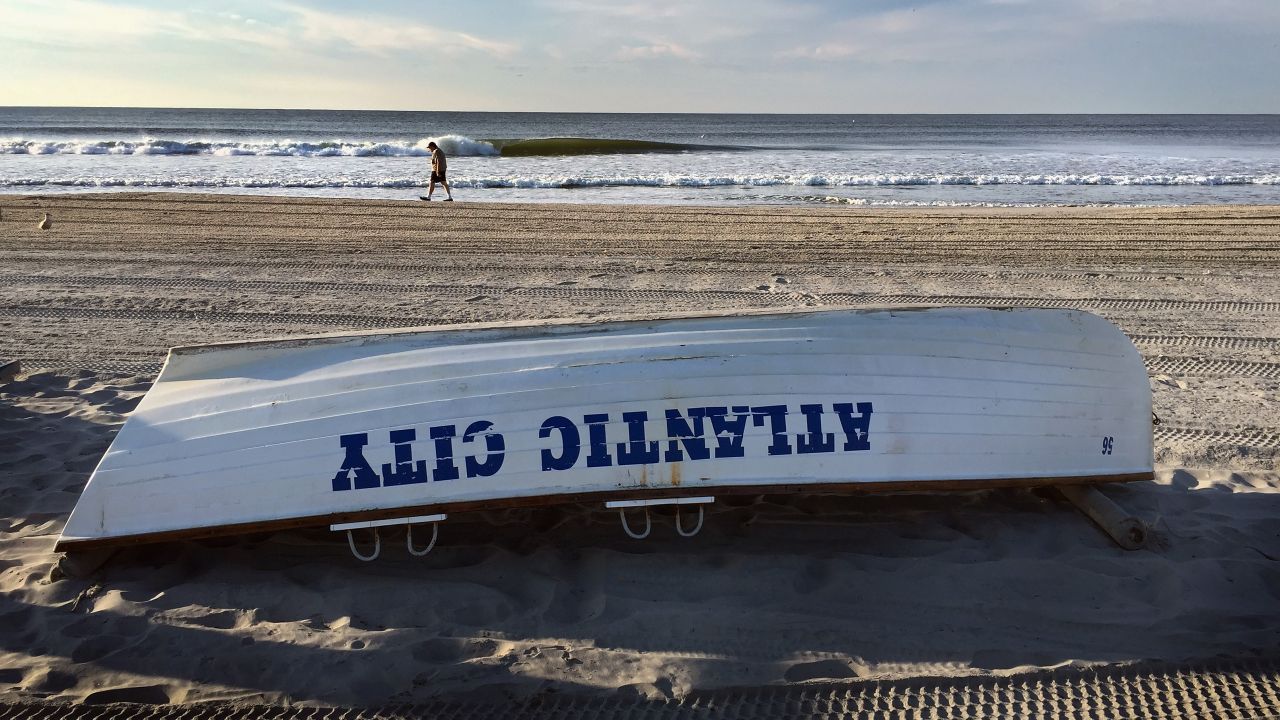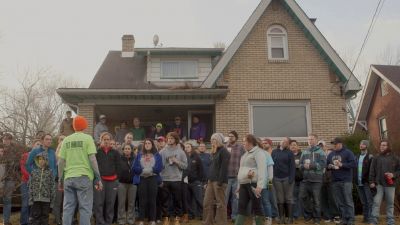
New casinos in neighboring states have drawn many visitors away from Atlantic City, New Jersey, and in 2014 some 8,000 people were laid off when four of the city's major casinos closed. The closures brought Atlantic City's unemployment rate to more than 11 percent, double the national average. The mass unemployment produced the highest foreclosure rate of any metropolitan US area, with 1 out of 113 homes in foreclosure in Atlantic County in 2015. (Photo by John Moore/Getty Images)
EDITOR’S NOTE: We’re marking the end of summer by sharing a series our colleagues at PBS have done on an iconic summertime town: Atlantic City, New Jersey. As part of “Chasing the Dream,” a public media initiative covering poverty and opportunity in America, NJTV took a comprehensive look into the history of Atlantic City: from its booming heydays, through its decline and towards the hope the resort city has for reviving its fortunes.
Atlantic City was arguably a victim of two trends we’ve spent a lot of time chronicling on this site: unregulated financial interests that led to the economic meltdown of 2008 and climate change in the form of Hurricane Sandy.
It’s a town that Republican presidential nominee Donald Trump remade and then — abetted by his would-be Cabinet nominee, corporate raider Carl Icahn — unmade. But far more important than what it says about a few billionaires is what Atlantic City forces us to consider, on the Labor Day weekend, about the future of work and economic security. The dislocations and anxieties we’ve chronicled in our Rust Belt series have spread far beyond the industrial Midwest and into the service economy.
Journalist Lauren Feeney captures the enormity of the problem and points to a potential solution: the resilience of a community and its people.
PART 1: THE PROMISE
In this first episode of Voices from Atlantic City, we learn about the heady optimism as Atlantic City pioneered the idea of using casino gaming to revitalize a depressed urban community.
PART 2: THE HEYDAY
The ’80s were the days of glitz and glamour, Donald Trump and disco. In this episode, we meet a cocktail waitress, a pit boss, a hair stylist and a drug dealer who tell us what life was like at a time when the opportunities seemed limitless.
PART 3: THE DECLINE
By 2014, the fallout from the economic crash of 2008 and other factors resulted in the closing of four casinos, costing 8,000 people their jobs. In this episode of Voices from Atlantic City, we learn about the social, political, natural and economic factors that lead to the closings, and hear from the workers themselves about the day they learned the doors were closing.
PART 4: THE AFTERMATH
In this episode, we explore the difficult road ahead for those affected by the closing of the casinos, as we follow former workers to a welfare-to-work program, a food bank, and a sheriff’s sale — today, with the casino closings, Atlantic County, New Jersey, now has the highest rate of home foreclosures in the country.
PART 5: THE FUTURE
In this final chapter of our series, as the summer of 2016 approaches, workers at the Trump Taj Mahal attempt to save one of the last vestiges of the “good old days,” while others search for new directions for themselves and the city’s economy.




